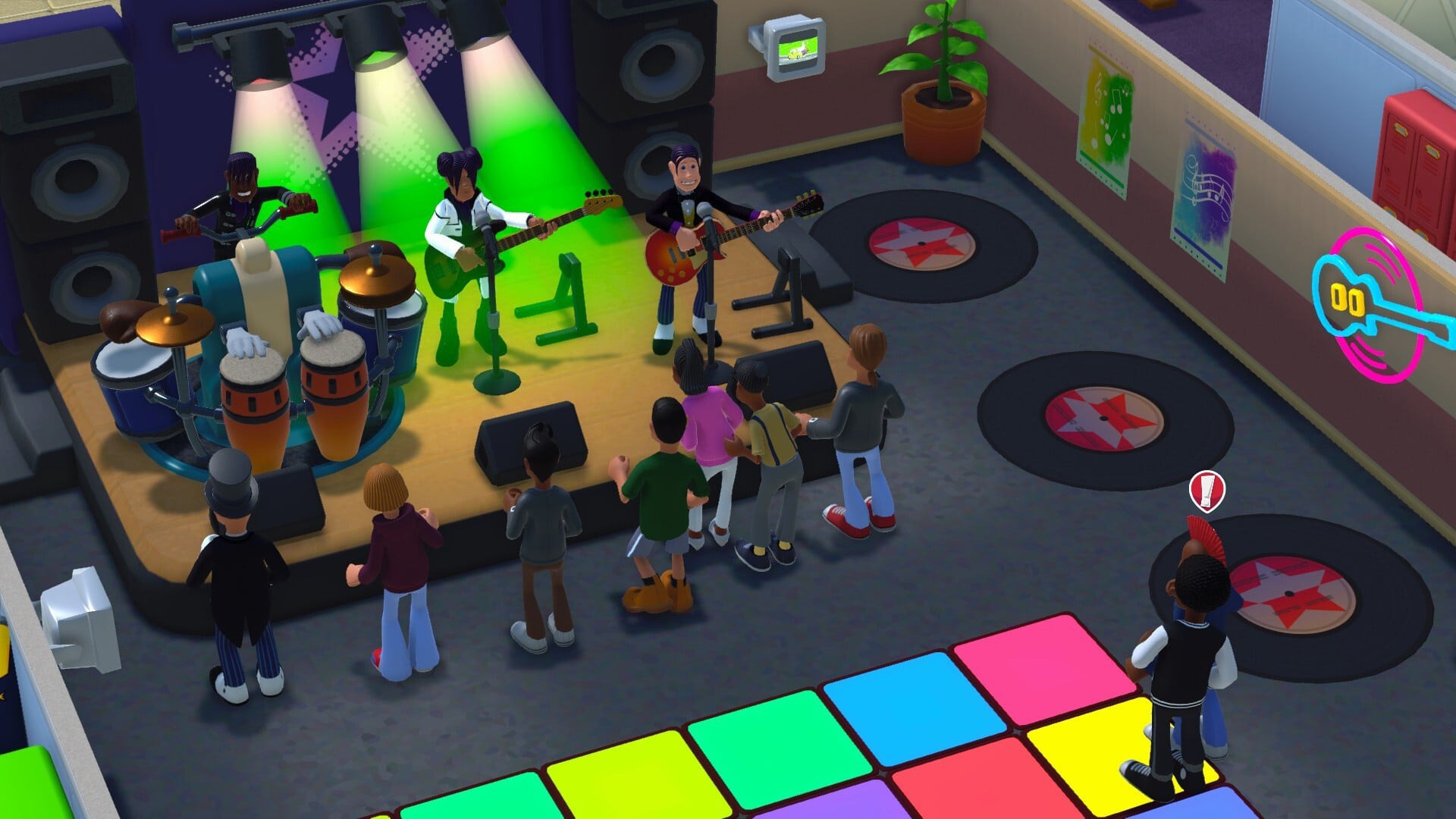Two Point Campus aims to bridge the gap between business and building freedom, surpassing its predecessor Two Point Hospital.
“Students are asked not to be asked,” is the first thing I hear when I start Two Point Campus. And already have to smile the first time. Yep, this is undoubtedly the sequel to Two Point Hospital, where it was still the patients who were asked not to die in the corridors. In terms of style and humour, I feel right at home. And this despite the fact that Two Point Campus is completely different from its predecessor in many respects.
After spending several hours in my own virtual university and pestering the developers with questions, I know one thing: Two Point Campus should once again crown one of the most popular simulation games of recent years.
What is Two Point Campus about?
If you’re already familiar with Two Point Hospital – the quasi-remake of the popular Bullfrog classic Theme Hospital – then you already have an idea of what to expect from the series. You play a mix of construction strategy and economic simulation, and sometimes even a bit of God.
Two Point Campus once again effortlessly manages the balancing act between very demanding management and a wonderfully silly setting. On the one hand, you design every little aspect of your own university, such as finances, catering, courses and clubs – and on the other hand, there are, for example, lance-riding clubs in which students dressed as knights punch each other in the yard.
There is a choice between the campaign and the free sandbox mode. In the campaign, you are gradually exposed to different maps on which you have to help your university achieve black figures and an excellent grade average – without neglecting the fun.
The biggest difference to Two Point Hospital, however, is the construction mode – it is hardly recognisable. Instead of prefabricated rooms that you jigsaw together, you have an editor at your disposal that is strongly reminiscent of the building mode from The Sims. You can draw rooms by hand to your heart’s content, furnish them yourself, edit furniture colours and wallpaper, and even set every little box tree, every wall and every paving stone outside your university yourself – at least if you want to. For despite its complexity, Two Point Campus aims to bridge the gap between economic simulation and freedom of construction.
If you want to go into detail while building, you can lose yourself for hours in the editor and even just press the pause button. If you’re much more into action, leave it at the ready-made presets and plunge into micromanagement.
For whom is it exciting?
Whoever fails in this process has actually done everything right. In the interview, the developers tell me how they enthusiastically spent hours trying out different flower variations for their university garden and at one point were deeply in debt.
In response, head designer Lewis Brundish tells me: “That’s exactly the point, we don’t really punish that because of the humour of the game. Even if my uni doesn’t do particularly well at times, that’s just inherently funnier than if everything goes smoothly.”
Chief animator Chris Knott (who said he was deep in debt himself because the flower variations distracted him too much) adds:
“It’s like in Hospital when the patients couldn’t be cured. That was just funny because we made the animations just as rewarding when the machines failed once. It’s about humour in the end, that’s what these games are about. It’s about wit and being interested in the fate of the characters. “
In Two Point Campus this plays an even bigger role than in Hospital, because the students of our university are not nameless strangers, you accompany them over several years and get to know them from all sides. Who has what interests, who is friends with whom and who is always clogging the toilet?
So if you do fail, at best it’s just good storytelling. This is also true when you are deciding individual student fates. Do you want to give everything to help a hopeless loser succeed, even though he’s dragging your grade point average into the ground? Or do you want to inconspicuously show him the way out in order to have a clean academic slate?
The summer break at your university makes it even easier. It runs until you are ready for a new semester. During this time, you can build new properties, choose the perfect bedding skin for your dormitories or hire new staff.
What do we like so far? What’s left open?
What do we like so far?
Multiple building mode: The new building mode in Two Point Campus allows for much greater creativity than Two Point Hospital and makes Schönbauer hearts beat faster.
Intuitive controls: Despite the great complexity, everything controls smoothly and understandably – both with the mouse and with the controller.
Well-known humour: The numerous announcements, e-mails and the many details in the universe of Two Point Campus are in no way inferior to their predecessor.
What remains open?
Long-term motivation: So far we have only been able to play the campaign for a few hours. It remains to be seen how exciting the individual missions will be and whether the campus setting will provide enough motivating mechanics for the endgame.
Connection to the characters: Since the developers are fully committed to us having a personal relationship with all the characters, they should also bring along an exciting personality that is not just thrown together from the same set of cues over and over again.
We’ll know more on 9 August 2022 Then Two Point Campus will be released on PC and consoles after a postponement and will also land directly in the Game Pass.
Editorial conclusion
Point 1: I’m looking forward to Two Point Campus. Point 2: I’m already thinking about inviting my friends to a Discord round together. Because I believe that games like Two Point Hospital or Campus live from the fact that you share your completely individual stories and experiences with others. Be it through Let’s Plays, Livestreams or just a shared game night.
I still have a little doubt that the countless students actually have enough personality for me to be able to tell them all apart and that I care about each individual fate. But I have good hope for the building fun, the economic simulation and the humour of Two Point Campus.



